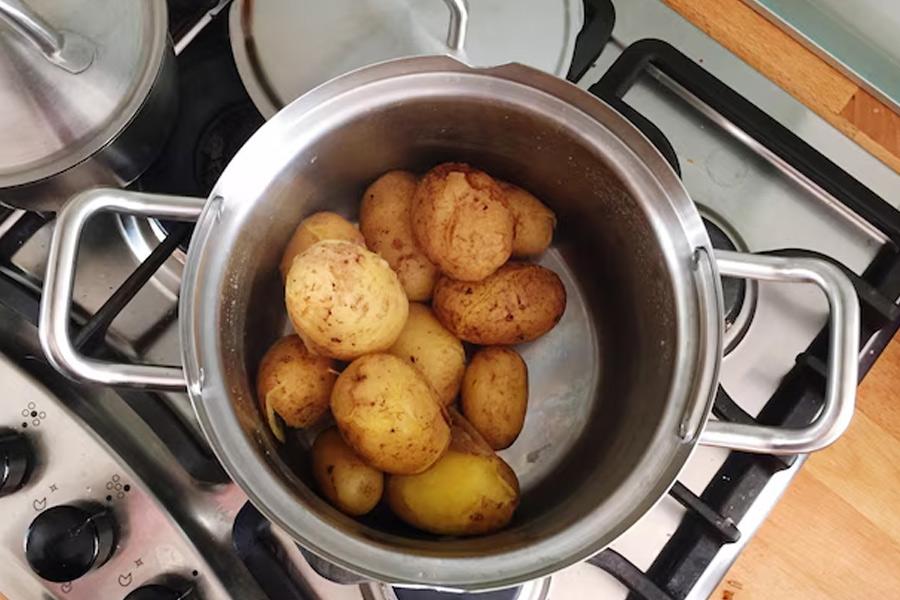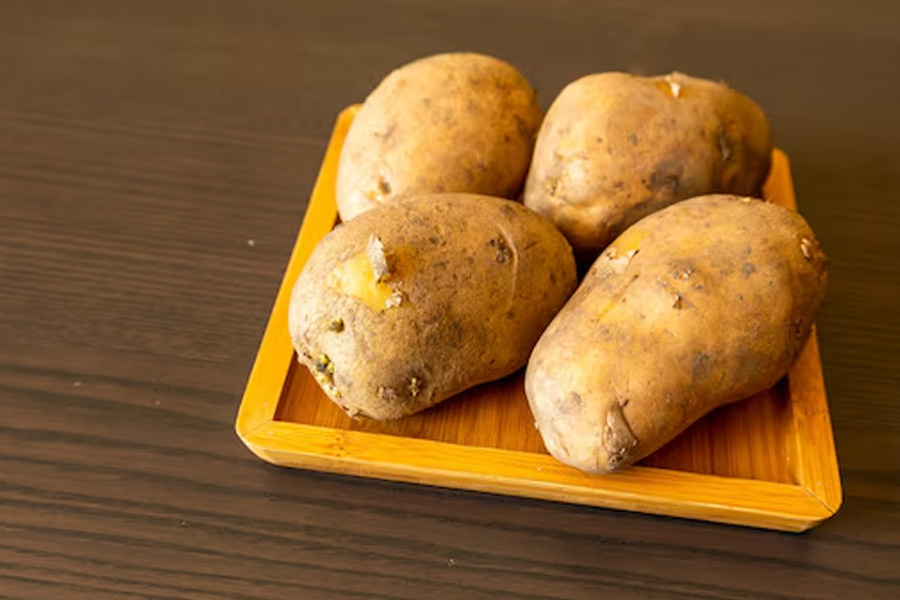-1741586729959.webp)
Refrigerating cooked potatoes is a common practice for many, but is it the best way to store them? While it might seem convenient to keep cooked potatoes in the fridge, there are several factors to consider. Cooked potatoes are rich in nutrients and can be a versatile ingredient in various dishes. However, storing them improperly can lead to changes in texture, flavour, and even nutritional value. Read ahead as an expert shares the pros and cons of refrigerating cooked potatoes and provides insights from an expert in the field.
Table of Content:-
The Impact of Refrigeration on Cooked Potatoes

Refrigerating cooked potatoes can cause several changes that might not be desirable. For instance, the cold environment can lead to a grainy or mealy texture when the potatoes are reheated. Cooling potatoes after cooking can have nutritional benefits. According to Ralston D'Souza, Founder - Liv Ezy, Bangalore, "If you refrigerate potatoes after cooking, it increases the resistance which feeds good gut bacteria, lowers glycaemic index and you may even absorb fewer calories.” This process forms resistant starch, a type of starch that is not digested in the small intestine but serves as a prebiotic in the large intestine, supporting gut health.
This is because the starches in the potatoes convert into a more crystalline form, affecting their natural creamy consistency. Additionally, refrigeration can mute the flavours of the potatoes, making them taste bland compared to those stored at room temperature.
ALSO READ: What Happens to Your Body When You Stop Snacking? Nutritionist Shares Tips To Adjust Hunger
Study on Chilled Potatoes
A study published on PubMed highlighted the benefits of consuming chilled potatoes. The research showed that eating chilled potatoes can lead to significant reductions in postprandial glucose, insulin, and glucose-dependent insulinotropic peptide levels compared to consuming boiled potatoes. This indicates that cooling potatoes can have a positive impact on blood sugar control and insulin sensitivity.
Risks of Refrigeration

Despite the potential benefits of resistant starch formation, refrigerating cooked potatoes also carries some risks. For example, if not stored properly, refrigerated potatoes can become moist and develop off-flavours due to the conversion of starches into sugars14. This can lead to accelerated spoilage and potential foodborne illnesses if not consumed promptly.
Storage Alternatives
For those who need to store cooked potatoes for longer periods, freezing is a viable option. Cooked potatoes can be frozen without significant changes in quality, and they can last up to a year when stored properly. To freeze, ensure that the potatoes are cooled completely, then place them in an airtight container or plastic bag with all air removed before sealing.
ALSO READ: Can Pineapple Ease Period Cramps? Nutritionist Explains Its Enzyme and Anti-Inflammatory Benefits
Conclusion
In conclusion, while refrigerating cooked potatoes can form beneficial resistant starch, it also poses risks such as texture changes and potential spoilage. If you choose to refrigerate, ensure they are stored in a well-ventilated container and consumed within a few days. For longer storage, freezing is recommended. By understanding the pros and cons, you can make informed decisions about how to store your cooked potatoes effectively.
Also watch this video
FAQ
Does refrigerating cooked potatoes reduce carbs?
Yes, You can only change the content of carbs by cooking and cooling them if they're starchy carbs like potatoes.Does refrigerating potatoes turn starch into sugar?
Yes, The starch in a potato will convert over to sugar if it is stored too cold.Does boiled potato increase blood sugar, when refrigerated or stored overnight?
Yes, boiled potato increase blood sugar when refrigerated or stored overnight
How we keep this article up to date:
We work with experts and keep a close eye on the latest in health and wellness. Whenever there is a new research or helpful information, we update our articles with accurate and useful advice.
Current Version